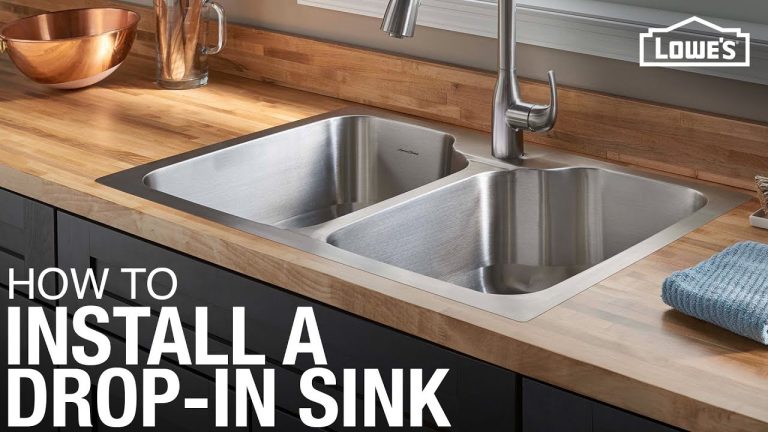5 Common Refrigerator Mistakes You Should Always Avoid
Refrigerators are a common appliance in most households, yet most of us don’t pay much attention to the way we use them. However, making certain mistakes when using a refrigerator can lead to food spoilage, energy waste, and even health risks. This article will discuss 5 common mistakes people make when using their refrigerators and ways to avoid them. By understanding these issues and taking the necessary actions, you can ensure the best performance and safety from your refrigerator.
Not Cleaning Your Refrigerator Regularly
Refrigerators are one of the most important and used appliances in the home. However, many people don’t give their refrigerators the attention it deserves. Cleaning your refrigerator is essential to maintain its efficiency and longevity. If you fail to do so, you may end up with food waste or even worse, food-borne illnesses. To ensure your refrigerator is always in tip-top condition, it’s important to clean it at least once a month. Start by taking out all the shelves, drawers, and bins, and cleaning them with warm soapy water. Then, wipe down the interior and exterior of the appliance, and vacuum the condenser coils at the back to remove dirt, dust, and pet hair. To finish, replace all the shelves and drawers, and mop up any excess water. Doing this regularly can help you avoid common refrigerator mistakes, keep your food fresh, and help your appliance last longer.
Not Vacuuming the Coils
Refrigerator coils are an important part of the refrigerator’s cooling system. Without them, your food won’t stay cool and fresh. Unfortunately, many people make the mistake of not vacuuming the coils regularly. This can lead to dirt and dust buildup, which can reduce the efficiency of the refrigerator and eventually lead to a breakdown. To ensure maximum efficiency, it is important to vacuum the coils at least once every three months. This can be done with a vacuum cleaner or by using a brush and dustpan. You can also purchase special coil cleaning brushes from your local hardware store. Taking the time to vacuum your refrigerator coils is an easy and effective way to extend the life of your refrigerator and keep it running at peak efficiency.
Not Checking the Temperature Setting
Properly setting the temperature on your refrigerator is an important part of keeping food fresh and safe. A temperature setting that is too low can cause food to spoil quickly, while a setting that is too high can cause bacteria to grow rapidly. The optimal temperature for most refrigerators is around 4°C (39°F). To ensure your fridge is set correctly, use a thermometer to double-check the temperature periodically. Additionally, be sure to keep the fridge door closed as often as possible to minimize temperature fluctuation, and take the time to clean the gasket and condenser coils to keep the fridge running efficiently. By taking these steps, you can ensure that your food will stay safe and fresh for as long as possible.
Letting Spoilage Build Up
Refrigerators are meant to keep food fresh, but letting spoilage build up in your fridge can quickly lead to health risks and food waste. To avoid spoilage, regularly check your fridge and dispose of anything that’s past its expiration date. When you bring in new groceries, make sure to store them in the proper areas of your refrigerator and check for any signs of spoilage. It’s also important to store leftovers in airtight containers and consume them within three to four days. If you notice an increase in the number of spoiled items in your fridge, take the time to clean it out and start fresh. This will help you save money and ensure that you’re eating healthy, safe food.
:max_bytes(150000):strip_icc()/fridge-mistakes-youre-probably-making-2000-e6ff4a38c0084604b66c070651785aa8.jpg)
Storing Too Much Perishable Food
Storing too much perishable food in your refrigerator is a common mistake that could potentially lead to food spoilage and even food poisoning. It can be easy to fall into the trap of stocking up on food that needs to be refrigerated, but there’s a limit to how much your refrigerator can store. Fresh produce, for example, will start to rot if stored too long. Even if you don’t think you’re storing too much, it’s important to check the temperature of your refrigerator (about 37°F) and the dates on food packaging, to ensure the food is still safe to eat. If you find that you’re storing more than you need, consider freezing the extra food for later.
Not Replacing Expired Items
Refrigerators are essential to the modern kitchen, but they require special care and attention to ensure their efficiency and longevity. One of the most common refrigerator mistakes people make is failing to replace expired items in their fridges. This can be a risky move, as expired food can become a breeding ground for bacteria and other contaminants that can make you and your family sick. To avoid this, make sure to regularly check expiration dates on products and discard food items that are no longer safe to eat. Additionally, if you’ve experienced a power outage, it’s best to immediately discard any food that has been exposed to room temperature for a significant amount of time. By following these simple steps, you can keep your fridge running smoothly and keep your family safe from foodborne illness.
Not Keeping Food at the Right Temperature
One of the most common refrigerator mistakes you should always avoid is not keeping food at the right temperature. Food that is stored too warm can quickly spoil and become unsafe to eat. It’s important to check the temperature of your refrigerator regularly to ensure that the food inside is being kept at a safe temperature. To do this, you can use a thermometer to check the temperature inside the main compartment and the freezer. It’s recommended to keep the main compartment at a temperature of below 5 degrees Celsius and the freezer at a temperature of below -18 degrees Celsius. If the temperatures are too high, it’s important to adjust the settings on your refrigerator as soon as possible to avoid any food-borne illness.
Not Paying Attention to Your Freezer Settings
When it comes to keeping your food safe and fresh, one of the most important steps is to make sure you’re paying attention to your freezer settings. Even if you don’t use your freezer regularly, it’s important to make sure it’s set to the proper temperature. If it’s set too low, your food will freeze solid and won’t last as long. If it’s set too high, your food may spoil quickly. To maximize the lifespan of your food, set your freezer temperature to between 0 and 5 degrees Fahrenheit. Additionally, don’t forget to defrost your freezer every few months to keep it running efficiently.
FAQs About the 5 Common Refrigerator Mistakes You Should Always Avoid
What are the most common refrigerator mistakes?
The most common refrigerator mistakes include overstuffing the fridge, not cleaning it regularly, not checking expiration dates, not defrosting the freezer, and not keeping the temperature consistent.
How often should I clean my refrigerator?
You should clean your refrigerator at least once a month to keep food fresh and safe from contamination.
What temperature should my refrigerator be set to?
Your refrigerator should be set to between 37 and 40 degrees Fahrenheit to keep food fresh and safe.
Conclusion
Many common mistakes can be made when it comes to using a refrigerator. It is important to always keep in mind that a refrigerator is a delicate appliance and should be handled with care. By avoiding the five common refrigerator mistakes listed above, you can help ensure that your refrigerator stays in good working order for years to come.






